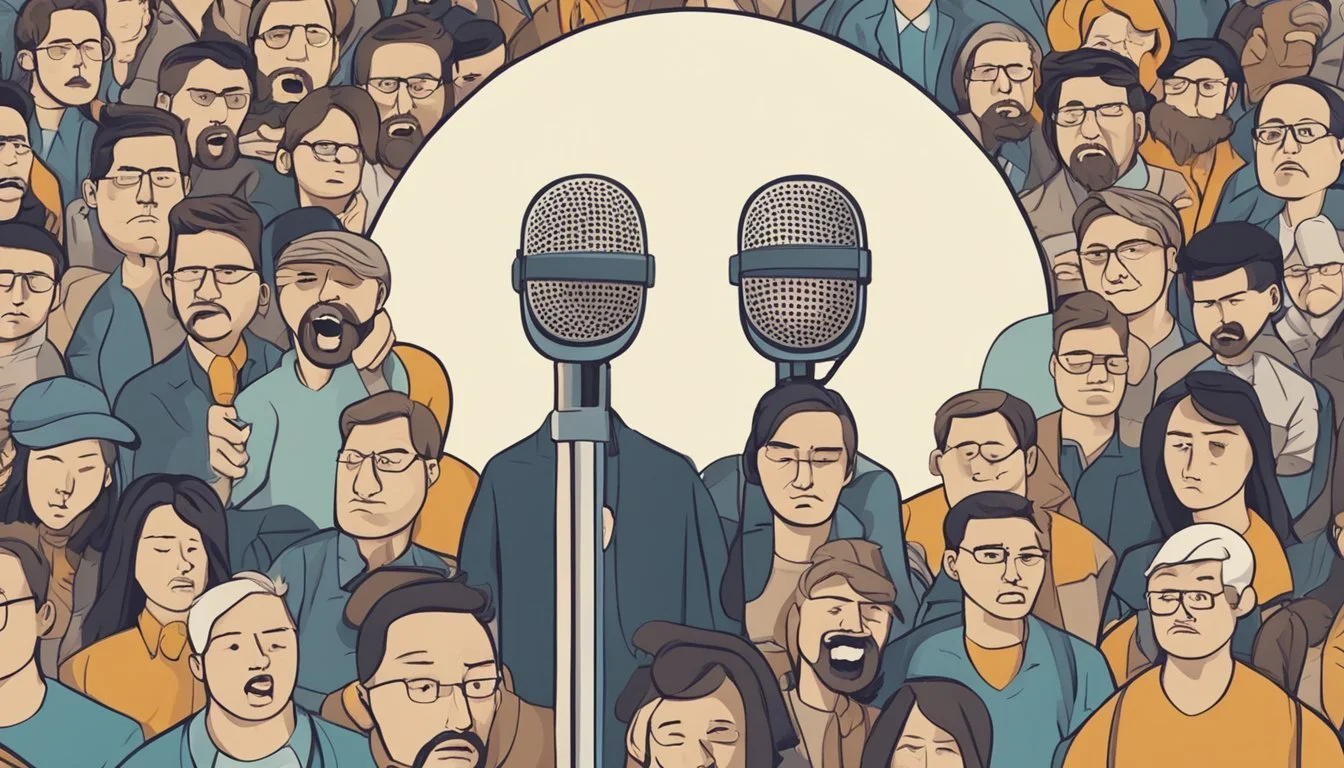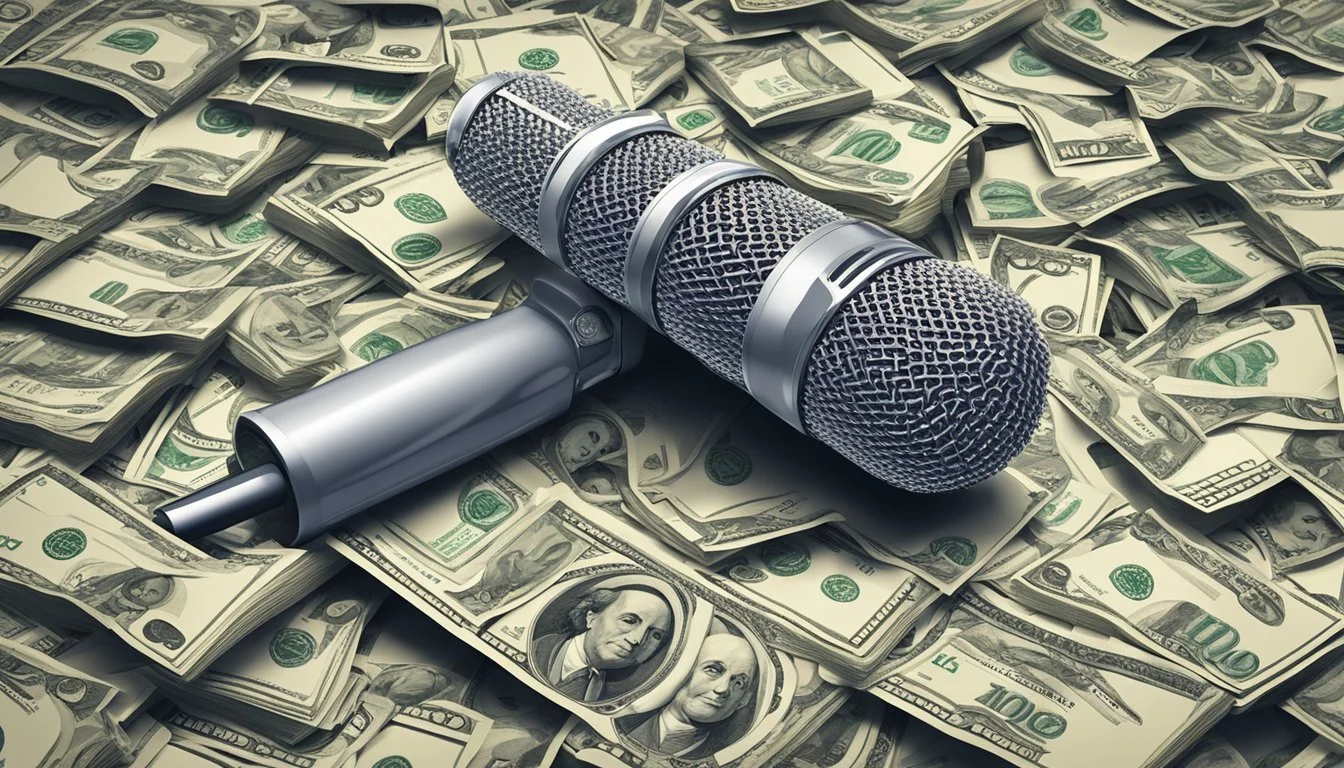Joe Rogan Cancel Controversy: How He Defies Cancel Culture and Thrives!
Joe Rogan, the popular podcaster and UFC commentator, has faced numerous attempts at cancellation over the years. His controversial statements on topics like COVID-19 and past use of racial slurs have sparked intense debate and calls for his removal from platforms like Spotify.
Despite the backlash, Rogan has proven remarkably resilient to cancel culture, maintaining his massive audience and influence. His ability to weather controversies stems from a loyal fanbase, his willingness to address criticisms head-on, and the sheer scale of his media footprint.
Rogan's experience highlights the complex dynamics of modern cancel culture and raises questions about accountability in the digital age. As one of the most consumed media products globally, his ongoing success demonstrates the limitations of traditional cancellation efforts when applied to figures with devoted followings and significant cultural sway.
Overview of Joe Rogan
Joe Rogan is a prominent media figure known for his successful podcast and diverse career in entertainment and sports. His outspoken style and wide-ranging interests have garnered him a massive following and occasional controversy.
Career and Public Persona
Joe Rogan began his career as a stand-up comedian in the late 1980s. He gained wider recognition as the host of the reality show "Fear Factor" from 2001 to 2006. Rogan also established himself as a UFC commentator, bringing his martial arts expertise to the world of mixed martial arts.
His candid personality and willingness to discuss controversial topics have made him a polarizing figure. Rogan's interests span comedy, politics, science, and conspiracy theories. This eclectic mix has contributed to his broad appeal and criticism.
The Joe Rogan Experience Podcast
"The Joe Rogan Experience" launched in 2009 and quickly became one of the most popular podcasts globally. The show features long-form conversations with guests from various fields, including entertainers, scientists, athletes, and politicians.
In 2020, Spotify acquired exclusive rights to the podcast in a deal reportedly worth $100 million. The podcast's success has made Rogan a significant influencer in media. His platform has sparked debates about free speech and content moderation.
Rogan's podcast has faced controversy, particularly during the COVID-19 pandemic. He faced criticism for promoting unproven treatments and hosting guests with contentious views on vaccines. Despite calls for cancelation, Rogan's large and dedicated audience has kept him largely insulated from such pressures.
Controversies Surrounding Joe Rogan
Joe Rogan, host of "The Joe Rogan Experience" podcast, has faced multiple controversies in recent years. These issues have sparked debates about free speech, misinformation, and racial sensitivity in media.
Use of the N-Word
Rogan came under fire for his past use of the N-word on his podcast. A compilation video surfaced showing him using the racial slur multiple times over the years. He apologized, stating he had not used the word in a racist context but acknowledged it was inappropriate.
Spotify, which hosts Rogan's podcast, removed over 100 episodes containing offensive language. This incident raised questions about content moderation and the responsibilities of platforms hosting controversial figures.
Misinformation and COVID-19
Rogan faced criticism for spreading misinformation about COVID-19 and vaccines on his show. He hosted guests who promoted unproven treatments and challenged established medical advice.
Health experts and scientists expressed concern over the potential impact of his statements on public health. Spotify added content advisories to episodes discussing COVID-19 in response to the backlash.
Some artists, including Neil Young and Joni Mitchell, removed their music from Spotify in protest of Rogan's content.
Accusations of Racism and Discrimination
Beyond the N-word controversy, Rogan has been accused of making racist and discriminatory comments. Critics point to jokes and statements perceived as offensive to various ethnic and minority groups.
He has also been criticized for hosting controversial figures associated with far-right ideologies. These choices have led to debates about the balance between free speech and promoting harmful views.
Rogan's defenders argue that he provides a platform for diverse opinions, while critics contend he amplifies dangerous ideas.
The Impact of Cancel Culture
Cancel culture has become a contentious issue in modern society, affecting public figures and sparking debates about free speech and accountability. Its effects have rippled through entertainment, politics, and social media.
Definition and Implications
Cancel culture refers to the practice of withdrawing support for public figures or organizations deemed to have acted offensively. It often involves public shaming and boycotts.
Supporters argue it holds people accountable for harmful behavior. Critics claim it can lead to mob mentality and stifle free expression.
The phenomenon has gained traction on social media platforms, where hashtags can quickly mobilize large groups. This digital aspect has amplified cancel culture's reach and impact.
Joe Rogan and Cancel Culture
Joe Rogan, host of "The Joe Rogan Experience" podcast, has been a central figure in cancel culture debates. His controversial statements have led to calls for boycotts and platform removals.
Spotify faced pressure to remove Rogan's podcast over COVID-19 misinformation concerns. This led to artists like Neil Young and Joni Mitchell pulling their music from the platform in protest.
Rogan has criticized cancel culture, arguing it stifles open dialogue and comedy. He maintains that his show provides a platform for diverse viewpoints.
Notable Figures and Cancel Culture
Several high-profile celebrities have faced cancel culture's effects:
Neil Young and Joni Mitchell: Removed music from Spotify over Joe Rogan controversy
India Arie: Joined boycott, citing Rogan's comments on race
Louis C.K.: Career impacted after sexual misconduct allegations
J.K. Rowling: Faced backlash over comments on transgender issues
These cases highlight cancel culture's power to impact careers and public perception. They also demonstrate its complexity, as public opinion often remains divided on the appropriateness of "canceling" individuals.
Response from Spotify and Stakeholders
Spotify faced significant backlash over its support for Joe Rogan's podcast amid controversy surrounding COVID-19 misinformation. The situation sparked reactions from various stakeholders in the music industry.
Spotify's Stance
Spotify stood by Joe Rogan despite the controversy. CEO Daniel Ek emphasized the company's commitment to supporting creator expression while addressing concerns about harmful content. Spotify implemented content advisories for podcast episodes discussing COVID-19 and published its platform rules.
The company chose to keep "The Joe Rogan Experience" on its platform, citing the importance of diverse voices and open dialogue. Spotify had invested heavily in Rogan's podcast, reportedly paying over $100 million for exclusive rights.
Neil Young's Protest
Neil Young took a bold stance against Spotify's decision to continue hosting Rogan's podcast. The rock legend issued an ultimatum, demanding that Spotify remove either his music or Rogan's content from the platform.
When Spotify chose to keep Rogan's podcast, Young followed through on his threat. He removed his entire music catalog from the streaming service. Young's protest gained significant media attention and sparked discussions about artistic integrity and platform responsibility.
Other Industry Reactions
Young's actions inspired other artists to join the protest. Joni Mitchell, another iconic musician, also removed her music from Spotify in solidarity with Young. Some podcasters and content creators expressed concerns about being associated with a platform that they believed spread misinformation.
However, the boycott did not see widespread adoption among major artists. Many musicians chose to remain on Spotify, citing the platform's importance for reaching audiences and generating income.
The controversy led to increased scrutiny of Spotify's content policies and its role in shaping public discourse. It also highlighted the complex relationship between streaming platforms, content creators, and listeners in the digital age.
Social Media and Public Opinion
Social media platforms have become central to discussions about Joe Rogan and cancel culture. These online spaces shape public sentiment and fuel debates on free speech in the digital age.
Discussion on Social Platforms
Twitter, Facebook, and Reddit serve as hotbeds for conversations about Joe Rogan's controversies. Users share clips, memes, and opinions, often sparking heated debates. Hashtags like #JoeRogan and #CancelCulture trend regularly when new issues arise.
Some social media users defend Rogan's right to express controversial views. Others call for accountability and consequences for perceived offensive content.
Platform algorithms amplify polarizing content, intensifying divisions between Rogan's supporters and critics.
Public Sentiment Analysis
Social listening tools reveal mixed public opinions on Joe Rogan. Data shows a split between those viewing him as an important voice for free speech and those seeing him as promoting harmful ideas.
Sentiment analysis indicates:
45% positive mentions
35% negative mentions
20% neutral mentions
These numbers fluctuate based on current events and Rogan's latest statements or podcast episodes.
Free Speech Debates
Joe Rogan's situation has reignited discussions on free speech limits in media. Supporters argue that attempts to censor or "cancel" Rogan threaten open discourse.
Critics contend that platforming controversial figures can spread misinformation. They cite examples like Donald Trump's social media bans as precedent for content moderation.
The debate extends to broader questions about tech companies' roles in regulating speech. Some call for stricter oversight, while others advocate for minimal interference.
Commercial Impact and Capitalism
Joe Rogan's podcast has become intertwined with economic forces and platform capitalism. The show's massive audience translates to significant financial implications across multiple domains.
Economic Factors in Artist Decisions
Artists face complex economic calculations when deciding whether to appear on controversial platforms. Exposure on The Joe Rogan Experience can boost album sales and ticket revenue. However, association risks alienating segments of an artist's fanbase.
Some performers prioritize reaching Rogan's large audience. Others avoid the show to protect their brand image. The financial stakes are high, with potential impacts on streaming numbers, merchandise sales, and sponsorship deals.
Career trajectories can shift based on these choices. Emerging artists may see a Rogan appearance as a path to breakthrough success. Established stars might view it as an unnecessary risk.
Monetization of Podcast Content
The Joe Rogan Experience exemplifies the lucrative nature of popular podcasts. Ad revenue, sponsorships, and licensing deals contribute to the show's profitability. Rogan's multi-year Spotify contract, reportedly worth over $100 million, demonstrates the monetary value of his audience.
Content monetization strategies include:
Mid-roll advertisements
Product placements
Merchandise sales
Live event tickets
Rogan's business model influences the broader podcasting industry. His success encourages platforms to invest in exclusive content deals. It also shapes how other creators approach monetization.
Subscriber Impact on Spotify
Spotify's acquisition of The Joe Rogan Experience aimed to drive subscriber growth. The platform hoped Rogan's loyal fanbase would convert to paid users. Initial reports suggested a positive impact on new sign-ups.
However, controversy surrounding the show has also affected Spotify's brand. Some users canceled subscriptions in protest of Rogan's content. Artists like Neil Young removed their music from the platform.
Spotify faces ongoing challenges in balancing content moderation with user retention. The company must weigh the financial benefits of Rogan's audience against potential reputational risks.
Long-term subscriber trends will ultimately determine the deal's success for Spotify. The platform continues to invest in podcast content as a key growth strategy.
Conclusion
Joe Rogan's podcast has proven resilient against attempts to cancel or deplatform it. His massive audience and $100 million Spotify deal demonstrate his cultural influence and commercial power.
Rogan's ability to weather controversies, like those during the COVID-19 pandemic, highlights the limitations of cancel culture in the podcast realm. His long-form conversational format allows for nuanced discussions that resonate with many listeners.
The Joe Rogan Experience occupies a unique position in media. It straddles the line between mainstream reach and alternative perspectives, often challenging prevailing narratives.
Rogan's show continues to attract high-profile guests from various fields. This further cements its place as a significant platform for public discourse, despite occasional calls for boycotts or removal.
The podcast's enduring popularity suggests that audience demand can outweigh external pressures in the digital media landscape. Rogan's approach to free speech and open dialogue appears to have struck a chord with a substantial portion of the public.






